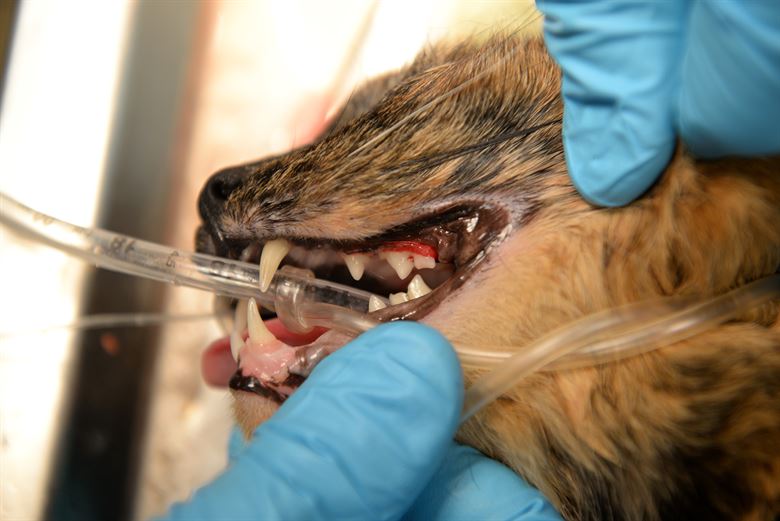How to properly look after your pet's pearly whites
For humans, brushing our teeth and taking care of our pearly whites is simply second nature – but many of us don't know we should be doing the same for our furry friends, too.
PDSA Vet Nurse Nina Downing says: "Dental care is just as important for our pets as it is for us, so it's really important to maintain a good dental hygiene routine – a healthy smile is a happy smile!
Why should we brush our pet's teeth?
"Cats and dogs are prone to plaque, rotten teeth, and gum problems just like we are, so good dental hygiene is essential. Plaque, which is a build-up of saliva, food and bacteria is one of the main culprits; it collects on teeth and eventually turns into a hard, brown substance called tartar. Tartar damages the teeth, causes painful, inflamed gums and might mean that your four-legged friend loses some of their teeth! Fortunately, introducing a regular brushing routine can help keep dental issues at bay and leave your pooch with a comfortable mouth.
Starting a pet-safe brushing routine
Just like brushing your own teeth, you'll need a toothbrush and toothpaste for your pooch – but make sure they are specially made for your pet and the toothpaste doesn't contain fluoride so is safe for them to swallow.
You can build up to teeth brushing in stages to make sure your pet slowly gets used to the feeling. Start by giving them a taste of the toothpaste, then move on to gently rubbing a soft cloth along their gums to get them used to having their teeth touched. Once they're ready, you can graduate to a brush that fits onto your finger, before moving on to a proper toothbrush which will be long enough to reach all of their teeth. Daily brushing is ideal – that way brushing becomes routine and just as simple as your own!
Tips and tricks for dogs
As well as brushing, there are a number of things you can do to keep your furry friend's mouth healthy. You can get special dental hygiene toys and chews which are designed to clean the teeth as they chomp away – you should also try to limit too many sugary treats! Though it may seem totally normal, it's best to avoid giving your pup animal bones to chew as they can break into splinters and damage their gums and throat or even cause broken teeth.

Dr. Jared Piper, Scott Veterinary Treatment Facility Veterinarian, shows the result of Snickers' teeth cleaning at Scott AFB, Illinois on Nov. 4, 2014. Piper suggests ideally cleaning a pet's teeth every day, but at a minimum three times a week. The base veterinary clinic serves not only military families' and retirees' family pets, but also serves military working dogs. (U.S. Air Force photo by Airman 1st Class Erica Crossen)
Tips and tricks for cats
If your cat really won't tolerate you brushing their teeth, you could try dental gels. They're not as effective as tooth brushing as they won't remove plaque, but are better than nothing if brushing is causing too much stress! You won't need a brush with gels, you will just need to put them directly on your cat's teeth. Try getting your kitty used to having their mouth and teeth touched in the same way as brushing, and repeat daily.
Signs of dental disease
Unfortunately, brushing alone doesn't protect against all dental problems, so it's important to be able to spot any abnormalities. Common signs of dental disease include bad breath (not just after meals), yellow/brown coloured teeth, red or bleeding gums, difficulty eating (or not wanting to eat) and even weight loss. These symptoms can be signs of dental disease, but can also be seen with lots of other conditions. Therefore, you should always check in with your vet who can recommend the best treatment for your four-legged friend.
PDSA is the UK's largest vet charity. We're on a mission to improve pet wellbeing through prevention, education and treatment. Support from players of People's Postcode Lottery helps us reach even more pet owners with vital advice and information. www.pdsa.org.uk







